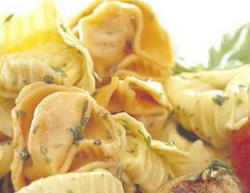Heated industry outcry over EU proposals for chilled foods

The European Commission (EC) sent a questionnaire to member states in November, asking them their opinion on suggested changes that could be fed into possible future regulation changes.
One of the suggestions involved a possible extension of Regulation 853/2004 (covering specific hygiene rules for food of animal origin) to the retail sector, which would introduce a requirement that all chilled food be stored and transported at 2C.
But the British Retail Consortium (BRC) vehemently opposes this suggestion, and insists that existing UK rules are “more than adequate, allowing retailers to establish their own practices providing they can prove the temperatures they operate at are safe”.
Higher emissions and bills
The trade body – which represents the major UK supermarkets – insisted that equipment upgrades would cost large retailers alone £100m (€117m), while energy consumption would increase by an estimated 20 per cent to ensure lower temperatures.
Accordingly, complying with the new provision would increase CO2 emissions and add to retailers bills, according to the BRC.
BRC food director, Andrew Opie, said: “Retailers already follow rules which ensure that food is stored and delivered at temperatures which keep it in top condition. New legislation dictating a specific temperature wouldn’t do anything to improve safety or quality.
Assessing the potential impact of any new refrigeration requirement, a BRC spokeswoman told FoodProductionDaily.com:“A lot of equipment wouldn’t operate at 2C and would have to be changed at cold stores, transport and in store as well. There’s a lot of additional burden for business to comply with.
She added: “It’s not just a case of using the fridge you already have and lowering the temperature. A lot of them can’t operate at that level, and would require new equipment to do that.”
Asked whether food manufacturers would be hit by any change to existing provisions, the spokeswoman said: “There are other requirements under hygiene regulations where the food manufacturer has to show that they are not risking health – under a risk assessment they have to show that they can operate up to 4C without any food safety implications.
“[But] distributors would be also be affected, because this involves transportation as well. Because it’s [the provision's] being extended to retail would have further implications in store, and at cold stores, distribution centres and for the transport of goods.”
No safety issues: CFA
Kaarin Goodburn, secretary general of the Chilled Food Association (CFA) said that the body had not seen any specific proposals, but that no safety or other issues were associated with current best practice.
“We question the benefit of such a move (to 2C) for commercial storage, given that delivery to UK retailers is currently best practice, i.e. no more than 5C,” Goodburn said.
Questioning whether a 2C maximum was even achievable with current technology, Goodburn added that chilled foods currently spend most of their shelf lives in domestic storage conditions of up to 8C “and no provision of a thermometer to enable the consumer to monitor or control the temperature”.
“A much bigger positive impact would be to bring in a mandatory requirement for thermometers to be installed in all domestic fridges coupled with improved specifications,” she said.
Barbara Gallani, the Food and Drink Federation's (FDF's) director of food safety and science, said: “Food and drink manufacturers support the current requirements, and we agree with retailers that the proposed changes would not improve the safety or quality of products, but would only add unnecessary environmental and economic burdens to businesses.”
The European Commission (EC) declined to comment on the BRC’s concerns.














